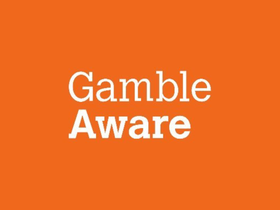The Responsible Gambling Council (RGC) is calling for a standardized approach across the industry to offer players the chance to use responsible gaming (RG) tools.
The RGC is a non-profit organization that safeguards the gambling industry to promote the health of people and communities who feel the effects of problem gambling. The RGC is based in Canada but works globally throughout the industry.
The RGC feels there needs to be a shared sense of “culture of responsibility” throughout the industry. It offers an in-depth review of how responsible gaming tools are utilized throughout the online gambling industry via its report Gambling Digital Tools Across The Player Spectrum.
As part of the report findings, RGC calls for the industry to:
- Creating more diverse tools tailored to demographics and behaviors
- Use existing technology to improve engagement and communication with players
- Offer a responsible gambling tool set that is consistent across the board
- Build a “tool-positive culture” where there is no stigma attached to using an RG tool
- Ensuring tools are easy to use, at no cost to the player, flexible, and integrated
- Offer different tools for players at different risk levels
- Educate players as to the RG tools on offer earlier in their player experience, so it seems like a “natural part of play.”
It is not yet clear if any operators have picked up this white paper and plan to implement any of the findings.
However, the RGC is not the only organization calling for a closer look at responsible gaming tools and how they are used across the industry.
With the rapid expansion of legalized sports betting across the US, a commitment to responsible gambling today will have a direct impact on the future health of players and sustainability of the industry
US sportsbook PointsBet announced earlier this month that it was teaming up with the National Council on Problem Gambling (NCPG) to launch a research initiative centered around responsible gaming decision-making for online gambling operators.
“With the rapid expansion of legalized sports betting across the US, a commitment to responsible gambling today will have a direct impact on the future health of players and sustainability of the industry,” PointsBet USA CEO Johnny Aitken said via press release.
“Navigating how to identify and address problem gambling is a complex and sensitive issue, and operators are regularly faced with how to best respond to customers exhibiting problematic gambling behavior. Through this research project, we’re aiming to gain more insights on the thought process that goes into finding solutions for those impacted by problem gambling and better help inform operator decision making on this matter.”
“Online gambling operators are required to provide various responsible gambling tools. These tools should be regularly reviewed and evaluated by stakeholders to ensure they are adequately serving customers,” Keith Whyte, Executive Director of the National Council on Problem Gambling, added. “Our hope is that the results of this survey will spark dialogue amongst operators as well as regulators, treatment providers, researchers, and problem gambling advocates to help inform the responsible gambling decisions that online gambling operators face.”
The findings from the research will be made public in September 2022.
Elsewhere, the companies operating in the state of Connecticut may well end up sharing data on problem gamblers as per comments made on Connecticut Public Radio and reported by GGBNews.
“We’ll share what information we can without jeopardizing the proprietary nature of our business operations,” Rodney Butler, chairman of the Mashantucket Pequot Tribal Nation, said. “The form and substance of that information will be determined over time.” This could mean the sharing of problem gambling information across sites so that more help can be given to those facing gambling addiction and harmful gambling behaviors.
With more industry focus on the use of responsible gaming tools, it does pose the question of whether the research is already in place and whether now is the time for implementation and action.



